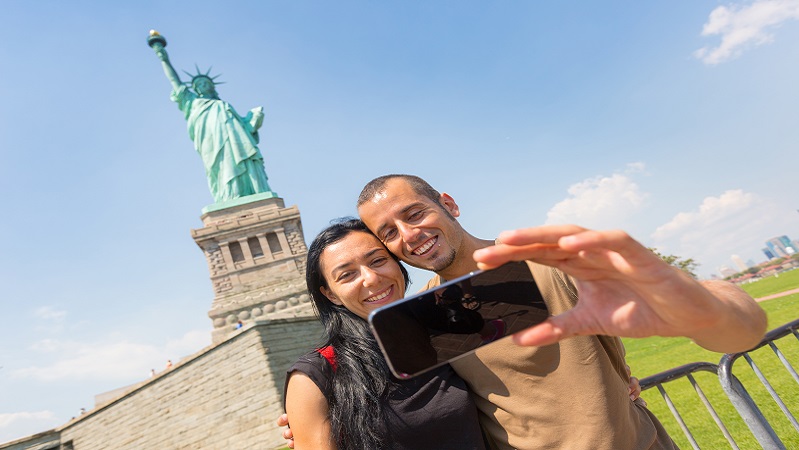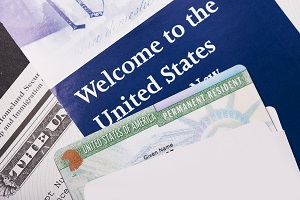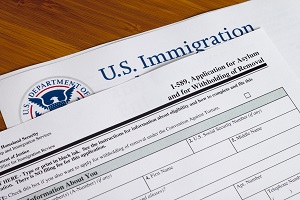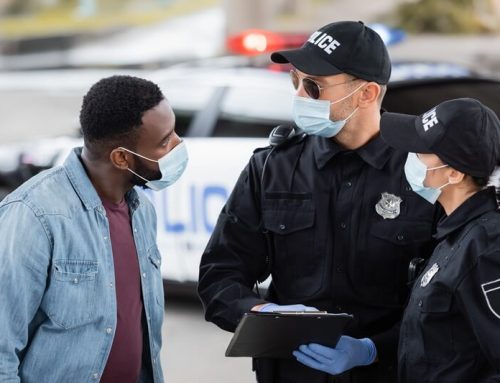What Is The Cuban Adjustment Act In Immigration?
”El Show Sin Fronteras”
Spanish Video Above Translated In English Below
The Cuban Adjustment Act In The U.S.
The Cuban Adjustment Act, which went into effect in November 1966, allows Cuban nationals or citizens, who have been physically present in the United States for at least one year, to apply for permanent residency.
In recent months, more than 46,000 Cubans arrived by land in the United States from October 2021, until the end of February 2022, a figure higher than the 35,000 of the ”rafter crisis” of 1994.
If you are from Cuba and have been in the United States for more than a year, this may be an option for you, depending on how you entered the country.
If you are interested in this or any other immigration process, do not hesitate to contact us so we can evaluate the best options for you and your family.

What Is The Cuban Adjustment Act About?
The Cuban Adjustment Act is a special law not only for Cubans but also applies to family members of Cubans, to help them apply for permanent residency after one year in the United States.
There are different requirements, but basically, it is a special benefit for Cubans.
The first requirement, which is the most important requirement, is when the person enters with inspection, this means when the person entered the United States. presented themselves at the border or with an immigration officer.
Normally, this person who has entered with inspection and has a document confirming that the person was inspected, or they receive a card (this is less common) which is a white paper that is called a “card of inspection” I-94, it has an identification number and sometimes has their photo, but it is not something that happens often.
This document is to show that the person who entered with inspection, is different from a person who entered without inspection, for example, the person crosses the border, crosses by the river and after you are already physically inside the United States, immigration or Border Patrol finds you and arrests you, that is entering without inspection.
What Are The Entries With & Without Inspection?
Persons who are arrested or detained by immigration after already being here on this side of the border, who entered without inspection, do not have the required entry to apply for adjustment of status.
Frequently, people who turned themselves in at the border or were detained in a room, or who were caught in the middle of the hill or swimming in the river, entered without inspection, because they were arrested and detained and processed after an immigration officer located them.
For people who safely cross the border and then, inside the United States, they meet with the Border Patrol, sometimes there is a credible fear interview, there are also bridges where one can ask for asylum or ask for entry or Parole In Place, but it is difficult to locate those bridges.
Some people attempt to locate these bridges and entry points to do the process legally, although it is also permitted to seek asylum within the United States after crossing without permission.
It is very difficult for people to get to the United States because on the way there is crime and a lot of insecurity, and there is no map that says where exactly one can locate these posts.
Many people try to locate these bridges or posts to find an officer who can help them with the credible fear interview, or for inspection.
Unfortunately, those persons after crossing the border are already being targeted by immigration officials, and that means that that entry is not counted as an entry without inspection, and that does not count against the Cuban Adjustment Act.
How Does Asylum Differ From Cuban Adjustment?
It doesn’t matter how the person enters to apply for asylum, or whether the person entered with a Visa and their Visa is still valid, or if their Visa has expired.
If the person entered with inspection at a bridge or the border, or if the person entered without inspection, it doesn’t matter, the same rule applies.
Individuals have a deadline of one year after entry into the United States to apply for asylum so that all have access to the asylum law.
In contrast, with the Cuban Adjustment, people have to meet requirements, and they only accept people from Cuba.
What Are The Steps To Apply For Cuban Adjustment?

Persons who are going to apply for Cuban Adjustment should primarily consult with a reputable immigration attorney.
They must prepare the application and submit it one year after they have arrived in the United States.
When they meet the first anniversary of being physically in the U.S, they will be eligible to apply for the adjustment.
We recommend to all Cubans who want to apply for this benefit, to keep proof and evidence of being here in the country, bank accounts, utility bills, rental agreements, or any document they have to prove that they were physically here for the last year.
Also, they have to start the process a few months before their first year in the U.S., so that they have time to hire a lawyer, prepare the forms, and have all the evidence in order.
Can My Cuban Spouse Apply For Cuban Adjustment?
Yes, family members of Cubans can apply for Cuban Adjustment even if they are not Cubans.
For example, if my spouse was not born in Cuba, they could apply for Cuban Adjustment if they father entered with inspection and he made the Cuban Adjustment years ago.
Children, partners, or relatives can apply for the same benefit, another example is that if my spouse is Cuban and I entered the United States with a Visa from another country or with inspection, I can apply for Cuban Adjustment because I am married to a Cuban, but in no way does it matter where the person comes from or the person’s country of origin.
What does matter is whether the person entered with inspection or not, so if I enter the U.S. without inspection and my spouse is Cuban, I cannot apply for Cuban Adjustment, because the rule of entering with inspection applies to everyone.
If I Did Not Enter The U.S. With Inspection, Do I Have A Chance Of Cuban Adjustment?
If the person entered the U.S. without going through the inspection process, they can go through the normal immigration process, can file the Family Petition, and then, the waiver for entry without inspection.
The waiver process we do is 100% within the United States, the person does not have to leave the country and wait for the waiver procedure.
After the waiver, we do the Consular Process in the applicant’s home country
If the spouse is Cuban and the applicant is not Cuban, they can apply for Cuban Adjustment at the same time, but the non-Cuban would not be able to apply for the benefit before the Cuban applies for the benefit.

They can petition together as petitioner and derivative, but normally, the Cuban has to process first or at the same time as their partner.
We also have to follow up carefully with Advance Parole, because sometimes this does not count as an inspection if the person is traveling on DACA Advance Parole.
It depends on the dates of departure, return and travel. The law is very limited and specific about Advance Parole and whether or not it qualifies for inspection in the United States.
Normally, with an Advance Parole you can only leave and enter once, it is not normal to have a permit to make multiple entries, they do not give that much time to stay outside the United States, it is about a month in total.
It is not possible to get out multiple times, but you can ask for Advance Parole again, a second or third time if you have a reason to be eligible.
If you have further questions about Cuban Adjustment, your inspection, or your specific case, you may contact us at (855) 502-0555. After a brief 10-minute evaluation of your case over the phone, we will let you know what options you have. You can also follow us on our social networks so you don’t miss our weekly broadcasts on Facebook, YouTube, and Twitch.
Frequently Asked Questions About Cuban Adjustment Act
Share this story!
Contact a U.S. Immigration Attorney Today!
Categories
How To Find Us
What Our Clients Say
“This Lawfirm is great, very professional and helpful. I love that they are always in communication and always available for when you have questions . 100% recommended by me and my family. Thank you Lincoln-Goldfinch Law – Abogados de Inmigración”





